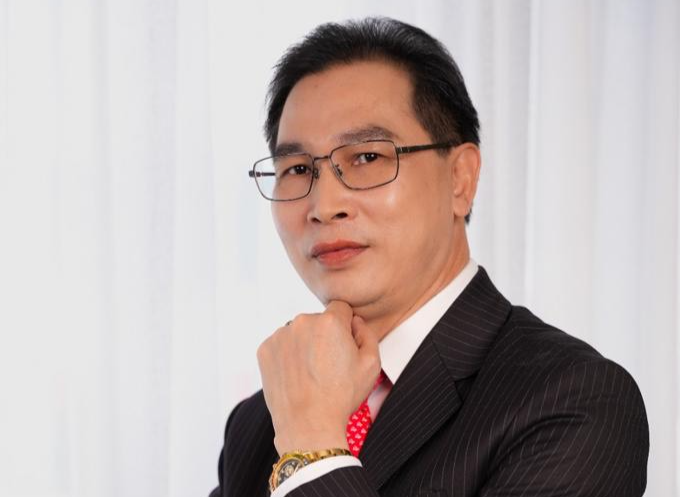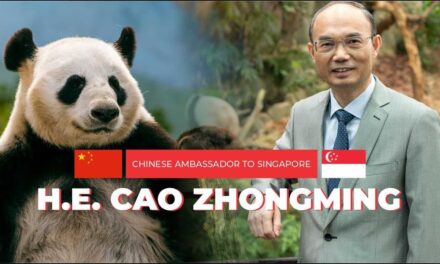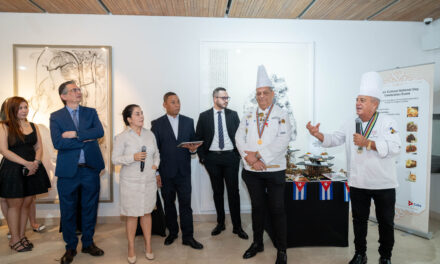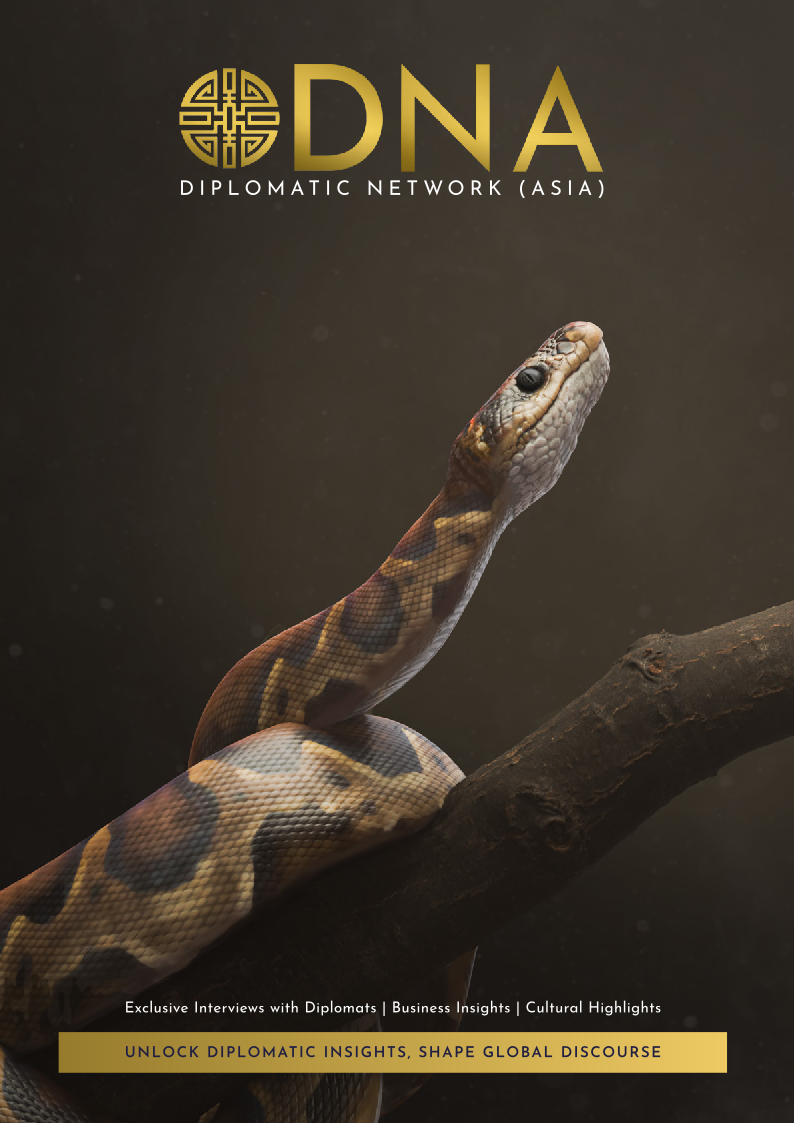Diplomatic Network (Asia) had the privilege of speaking with Laos Ambassador Sengkeo Pouangpadith, stationed in Singapore, to gain some insight into his role as an ambassador as well as the role of his country in the region.
With Laos assuming the position ASEAN chair this year, Ambassador Pouangpadith sheds light on the nation’s aspirations, challenges, and contributions to regional diplomacy. He also talks about the 50th anniversary diplomatic relations between Laos and Singapore, as well as how writing and authorship have helped him along his diplomatic journey.
Can you provide an overview of the current state of bilateral relations between Laos and Singapore?
Singapore has been a good and long-standing partnership of the Lao People’s Democratic Republic since 1974. We have cooperated through related mechanisms as well as regional and international fora, where possible and appropriate.
This year will turn to our jubilee of the 50th anniversary of the establishment of diplomatic relations between our two countries.
Five decades, our friendly relations and good cooperation have been strengthened through various exchanges of visits by high ranking officials, people-to-people contacts and business links between our two countries, particularly human resources development, trade and investment have been important areas that have significantly contributed to the socio-economic development of the Lao PDR.
The Lao PDR very much looks forward to working closely with Singapore to commemorate this milestone in a joyful and meaningful atmosphere. I do hope that our two countries will have a cordial celebration of this anniversary.
Maintaining strong bilateral ties requires continuous engagement and a focus on shared interests. As ambassador, I prioritize regular dialogues with Singaporean concerning authorities, actively participate in bilateral events, and encourage people-to-people exchanges. Additionally, I work closely with Singaporean businesses and civil society to explore new avenues for collaboration. These efforts not only strengthen institutional ties but also build understanding and friendship between our people.
What are the key areas of cooperation and potential areas for further collaboration?
The Lao PDR has abundance of natural resources. Agriculture sector remains a potential for economic development and a priority area of the Government of Lao PDR. In addition, with abundance of water resources, Laos has great potential for hydropower development. Moreover, as part of the green development policy, beside hydropower, the Lao government also widely promotes the development of other renewable energy such as solar and wind energy. Additionally, the tourism sector is another promising sector.
Today, there are a number of areas for cooperation between Laos and Singapore. We are delighted to note that our cooperation has been deepened and expanded these days. I highly value the result of energy cooperation, which has been implemented and greatly benefited both countries. I understand that the authorities concerned of both sides have been working together on potential extension of the power purchase agreement between the Lao PDR’s state-owned electric utility, EDL, and Singaporean private energy company Keppel Electric Pte Ltd, including extending the term from two years to three or five years, as the current agreement will be expired in June 2024. In this connection, we look forward to the renewal of the agreement in order to materialize our bilateral energy cooperation.
Other areas of cooperation include progress on drafting a memorandum of understanding on carbon credit, cooperation on anti-drugs and on education between the line ministries of our two countries. I do hope that authorities concerned of both sides can finalize them and fully implement the aforesaid areas of cooperation in a constructive manner.
I am happy to note that the Ministry of Natural Resources & Environment of the Lao PDR signed the MoU with the Ministry of Sustainable & Environment of the Republic of Singapore on Technical Cooperation in environmental protection, water resources management and climate change, including carbon credits. At present, we also received an interest from the Ministry of Trade & Industry of Singapore to sign the MoU to collaborate on carbon credit within the framework of Article 6 paragraph 2 of the Paris Agreement.
As an ambassador representing Laos abroad, what aspects of Laotian culture, history, or traditions do you find most important to share with the international community?
As ambassador I should serve as a bridge between diverse cultures of Laos and other cultures in the region and in the whole world. therefore, I play an essential role in fostering understanding and appreciation among people from different backgrounds. Through my work, my facilitate exchanges that enrich communities, promote cultural awareness, and support the integration of international perspectives into various settings, including educational institutions, businesses, and public forums. By sharing their knowledge and experiences and help to break down barriers, encourage dialogue, and build connections that transcend cultural divides, contributing to a more inclusive and harmonious global society.
My efforts not only enhance mutual respect but also open doors to new opportunities for collaboration and learning among individuals and groups of Laos-Singapore and from around the region and as well as around the world. I would like to take this opportunity to invite the Singaporean friends to take a visit to Laos to see the cultural diversity by themselves it will much better then hearing from other speaking.
As Laos takes the helm of ASEAN this year, all eyes are on the country to address the issues left unresolved during Indonesia’s stewardship. What would you say to those who are skeptical about Laos’ ability to effectively lead ASEAN and address the unresolved issues from Indonesia’s tenure?
The Lao PDR, as ASEAN Chair, will uphold ASEAN’s commitment to assist Myanmar in finding a peaceful and durable solution to the crisis based on Myanmar-led, Myanmar-owned principles and be guided by the Five-Point Consensus and the principles enshrined in the ASEAN Charter, as well as the ASEAN Leaders’ Review & Decision on the Implementation of the Five-Point Consensus adopted in 2022 and 2023. Besides, we will capitalize on the progress made by previous chairs, including Brunei, Cambodia and Indonesia in addressing Myanmar issues. We are also open to any constructive efforts to support the chair in implementing the 5 PC and to ensure the continuity, sustainability, and consistency of the ASEAN’s efforts in helping Myanmar.
As we are all aware that His Excellency Sonexay Siphandone, the prime minister of the Lao PDR in capacity of the chair of ASEAN, had appointed HE Alounkeo Kittikhoun, former minister to the Prime Minister’s Office of the Lao PDR, as the special envoy of the Lao PDR’s ASEAN chair on Myanmar.
I believed that the special envoy had actively engaged with ASEAN member states, ASEAN dialogue partners, international organizations, and relevant stakeholders of Myanmar, including the State Administration Council, National Unity Government, Ethnic Armed Organizations to consult on how to address the Myanmar issues.
Through those engagements, we noted that all Myanmar stakeholders have reaffirmed their vision and stance and showed no sign of compromise on how to peacefully resolve the crisis. However, the special envoy will not be discouraged and will continue to meet with Myanmar stakeholders to help Myanmar achieve a comprehensive, political resolution to the complex problem of Myanmar.
We also know well that there are more people in Myanmar that are in need of humanitarian assistance. Therefore, Lao PDR will do our best and work closely with all ASEAN member states to provide humanitarian assistance to Myanmar people in all areas affected by the conflict without discrimination. On this note, as the ASEAN chair in 2024, we would like to extend sincere thanks to Indonesia for providing humanitarian assistance to Myanmar in 2021 through the ASEAN Coordinating Centre for Humanitarian Assistance on Disaster Management worth more than USD200,000, and we encourage Indonesia to continue support humanitarian assistance to Myanmar, which will contribute to create a conducive environment to address the conflict in Myanmar.
Outside of your diplomatic duties, what hobbies or interests do you pursue to unwind and relax?
Besides my diplomatic duties, I’m interested in writing a book. I think writing can be a great tool to help us organize our thoughts or see the world through a different lens. Many writers find they make sense of the world around them through their work. Consequently, it inspires me to be creative and connect ideas together.
During my posting term in Singapore, as ambassador for more than two years, I had written two books about my work experiences. I believe that those books will be useful for the young generation.







